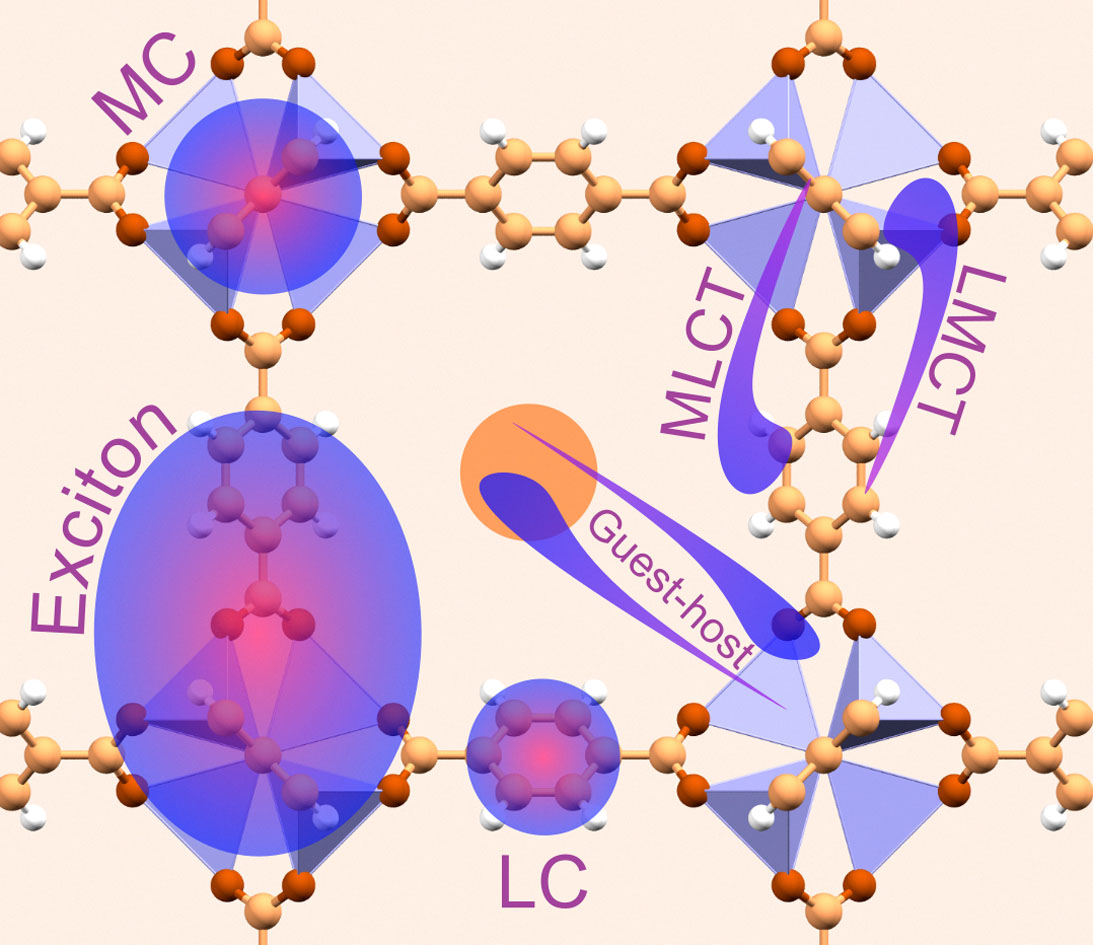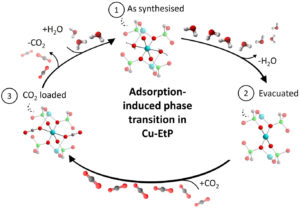Hybrid Pores for CO2 Technologies
Guest Edited by Petra Ágota Szilágyi , Jenny G. Vitillo , and Gavin A. Craig
Materials Advances is delighted to introduce our latest themed collection focused on inorganic-organic porous materials that enable the capture, storage, sensing, and conversion of CO2.
You can explore the collection and read the introductory editorial from our guest editors below. Articles in the collection are published in Materials Advances so they are all open access and freely available.
Read the introductory editorial
Read some of the featured articles below.
Simulating excited states in metal organic frameworks: from light-absorption to photochemical CO2 reduction
Michael Ingham, Alex Aziz, Devis Di Tommaso and Rachel Crespo-Otero
Mater. Adv., 2023, 4, 5388-5419 DOI: 10.1039/D3MA00518F
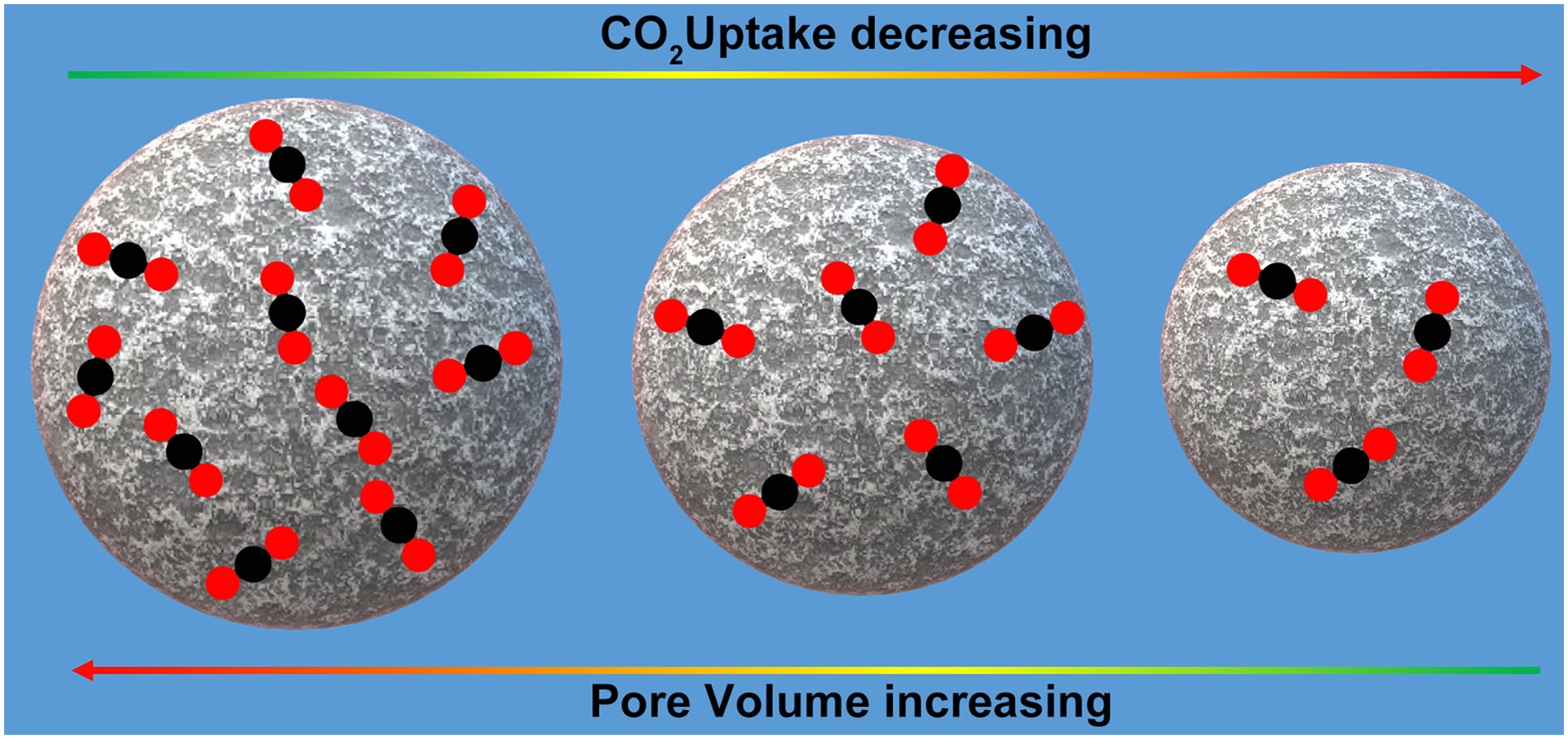
Pore volume regulated CO2 adsorption in C–C bonded porous organic frameworks
Himan Dev Singh, Piyush Singh, Deepak Rase and Ramanathan Vaidhyanathan
Mater. Adv., 2023, 4, 3055-3060 DOI: 10.1039/D3MA00218G
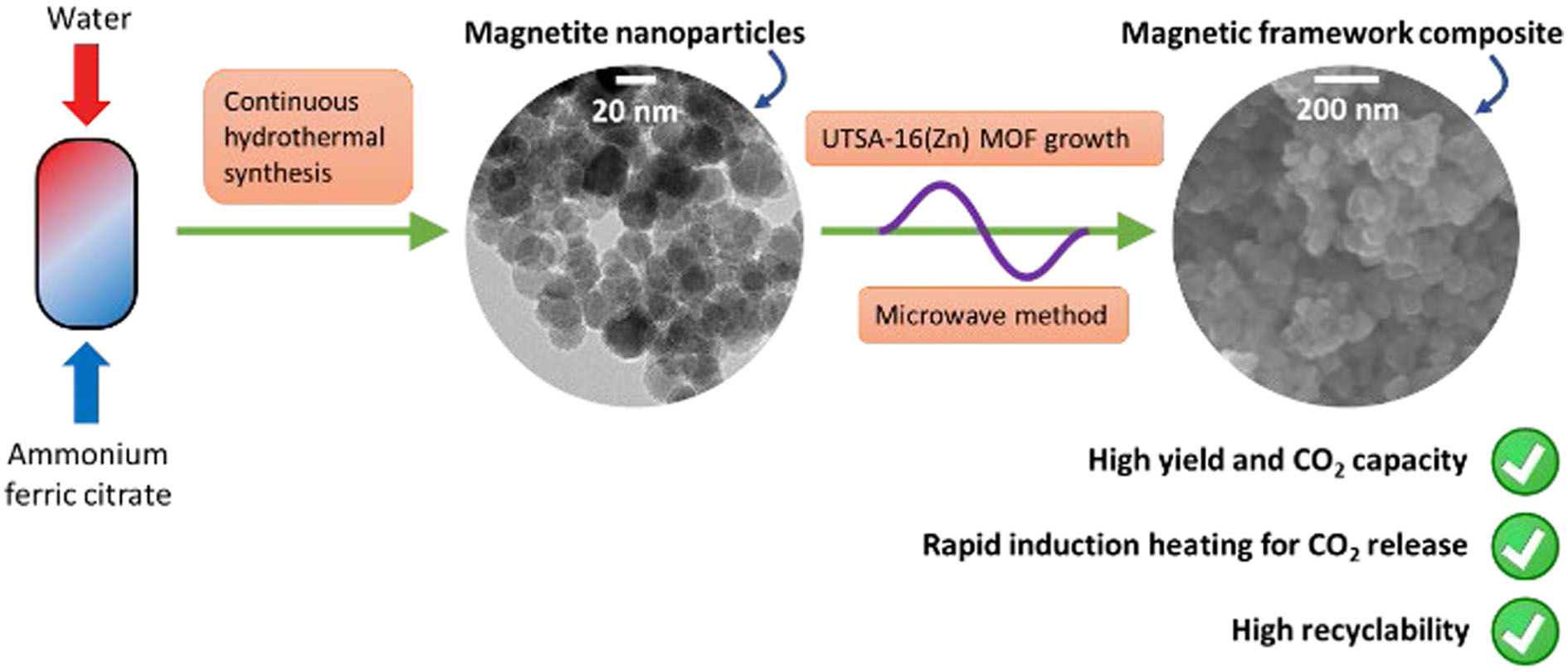 Rapid microwave synthesis of sustainable magnetic framework composites of UTSA-16(Zn) with Fe3O4 nanoparticles for efficient CO2 capture
Rapid microwave synthesis of sustainable magnetic framework composites of UTSA-16(Zn) with Fe3O4 nanoparticles for efficient CO2 capture
John Luke Woodliffe, Amy-Louise Johnston, Michael Fay, Rebecca Ferrari, Rachel L. Gomes, Ed Lester, Ifty Ahmeda and Andrea Laybourn
Mater. Adv., 2023, 4, 5838-5849 DOI: 10.1039/D3MA00351E
Unusual adsorption-induced phase transitions in a pillared-layered copper ethylenediphosphonate with ultrasmall channels
Margherita Cavallo, Matteo Signorile, Roberto Köferstein, Valentina Crocellà and Marco Taddei
Mater. Adv., 2023, 5, 183-198 DOI: 10.1039/D3MA00356F
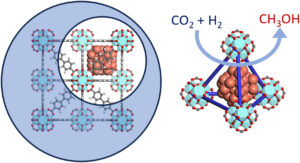 Direct CO2 to methanol reduction on Zr6-MOF based composite catalysts: a critical review
Direct CO2 to methanol reduction on Zr6-MOF based composite catalysts: a critical review
Elif Tezel, Dag Kristian Sannes, Stian Svelle, Petra Ágota Szilágyi and Unni Olsbye
Mater. Adv., 2023, 4, 5479-5495 DOI: 10.1039/D3MA00345K
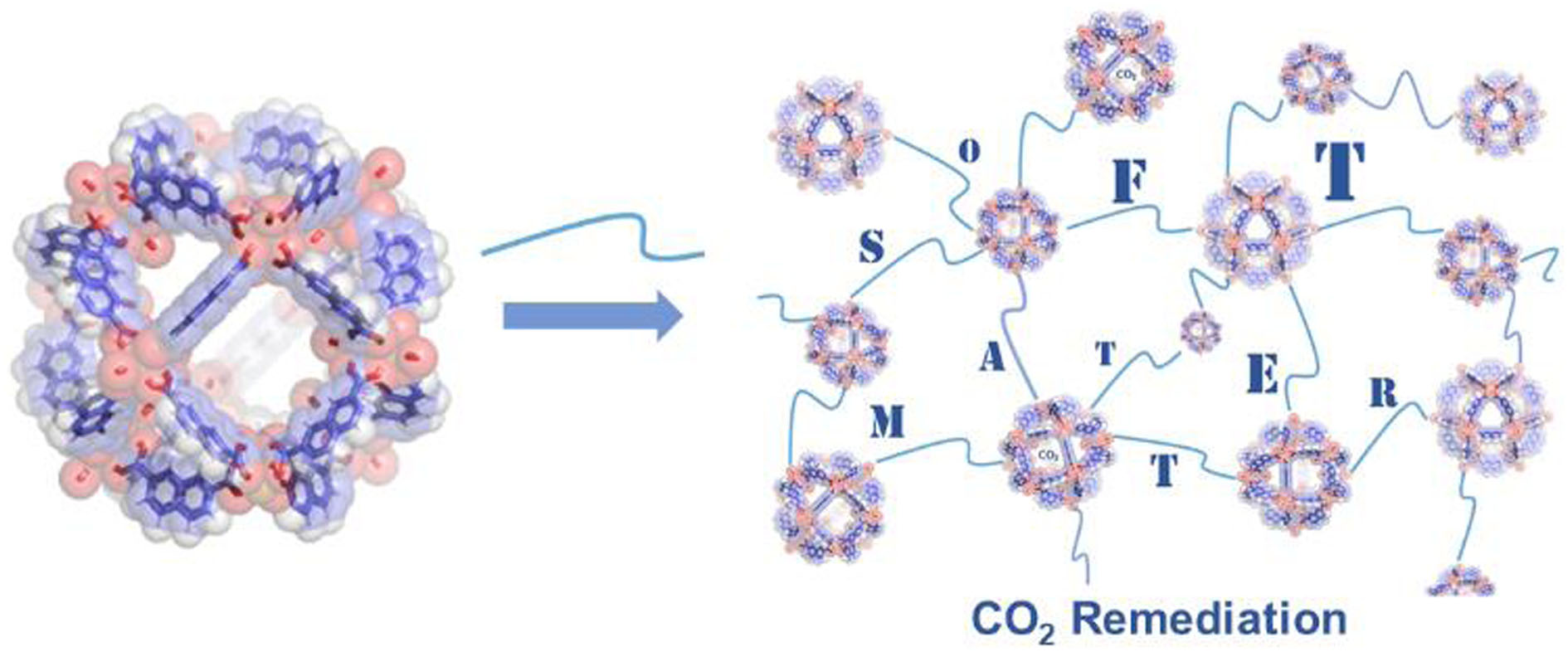
Connecting metal–organic cages (MOCs) for CO2 remediation
Javier Martí-Rujas
Mater. Adv., 2023, 4, 4333-4343 DOI: 10.1039/D3MA00477E
Materials Advances is always interested in considering high-quality articles on advanced functional materials and their manufacturing processes and we would be delighted if you would consider the journals for your next submission, which can be made via the Materials Advances online submission service. All submissions will be subject to initial assessment and peer review as appropriate according to the journals’ guidelines.
We hope you enjoy reading this collection and we look forward to seeing how this field progresses! Please continue to submit your exciting work on advanced functional materials to Materials Advances.
Do you have an idea for our next themed collection? Suggest a topic using our online form.




